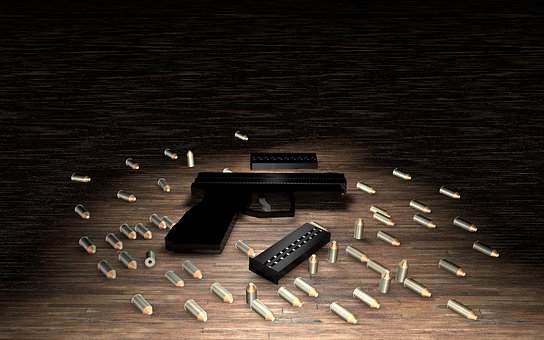
As the debate rises around America’s gun control, Thomas Heston, a health professor at Washington State University, suggests using blockchain technology to address the issue. Here’s why it may or may not work.
Once again, gun control has turned into a highly-debated subject in the US as the school shooting in Parkland, Florida claims the lives of three teachers and fourteen students.
By the time you read this, though, statistics suggest that another shooting could be even fresher in your mind.
As the experts from both sides of this issue argue back and forth, blockchain technology emerges as a potential solution, as Thomas Heston suggests using blockchain technology to address this issue.
Since 2012 there have been 239 shootings in the United States alone. According to GVA (Gun Violence Archive), a nonprofit organization developed to provide important data about gun violence. Further, although Americans constitute 4.4% of the world’s population, almost 31% of mass shooters exist in the U.S. Moreover, it is the home to 42% civilian-owned guns.
Blockchain and the firearm
Thomas Heston says, in his paper, A Blockchain Solution to Gun Control, that people who possess firearms can submit the information to the electronic gun safe cell. This information will then be tied to the owner’s biometric information, such as their fingerprint. The database will be used to track the manufacture and trade of guns.
Furthermore, the professor says that blockchain-based data has the potential to reduce firearm-related injuries, as precision in background checks increases. Is this a first step towards recording all background checks and the protection of gun-owner data?
Heston says that there are some challenges we will face while using blockchain technology to control gun violence on a national level, such as the initial cost of implementation and a fragmented system that may hamper the sharing of data.
Therefore, the federal government would need to play a leadership role in gun control.
That said, Heston is not alone in this reasoning. A company known as Blocksafe has developed an application to track firearms already. Kevin Barnes, the founder of this company says that the DApps can be created to benefit companies in the gun niche.
Conclusion
In general, the use of blockchain technology in the control of firearms adds an interesting facet to an already contentious debate. There appears to be a legitimate argument for both sides. However, it would require centralized support from the federal government, as each state has its own laws. We are already seeing moves against the involvement of blockchain, as Arizona passed a bill last year to ban the use of any technology to track firearm possession, and Missouri is drafting a bill to follow suit.









